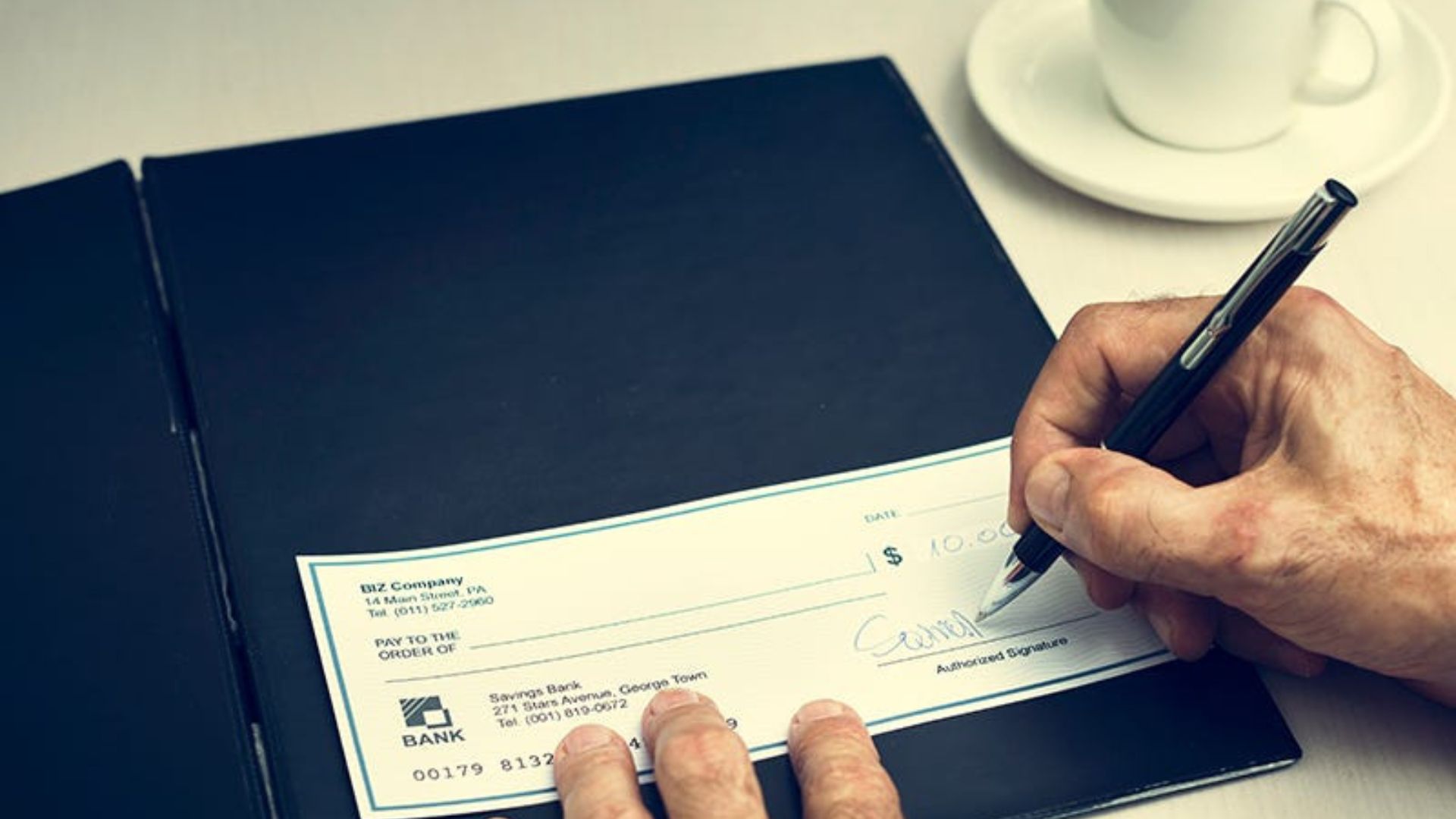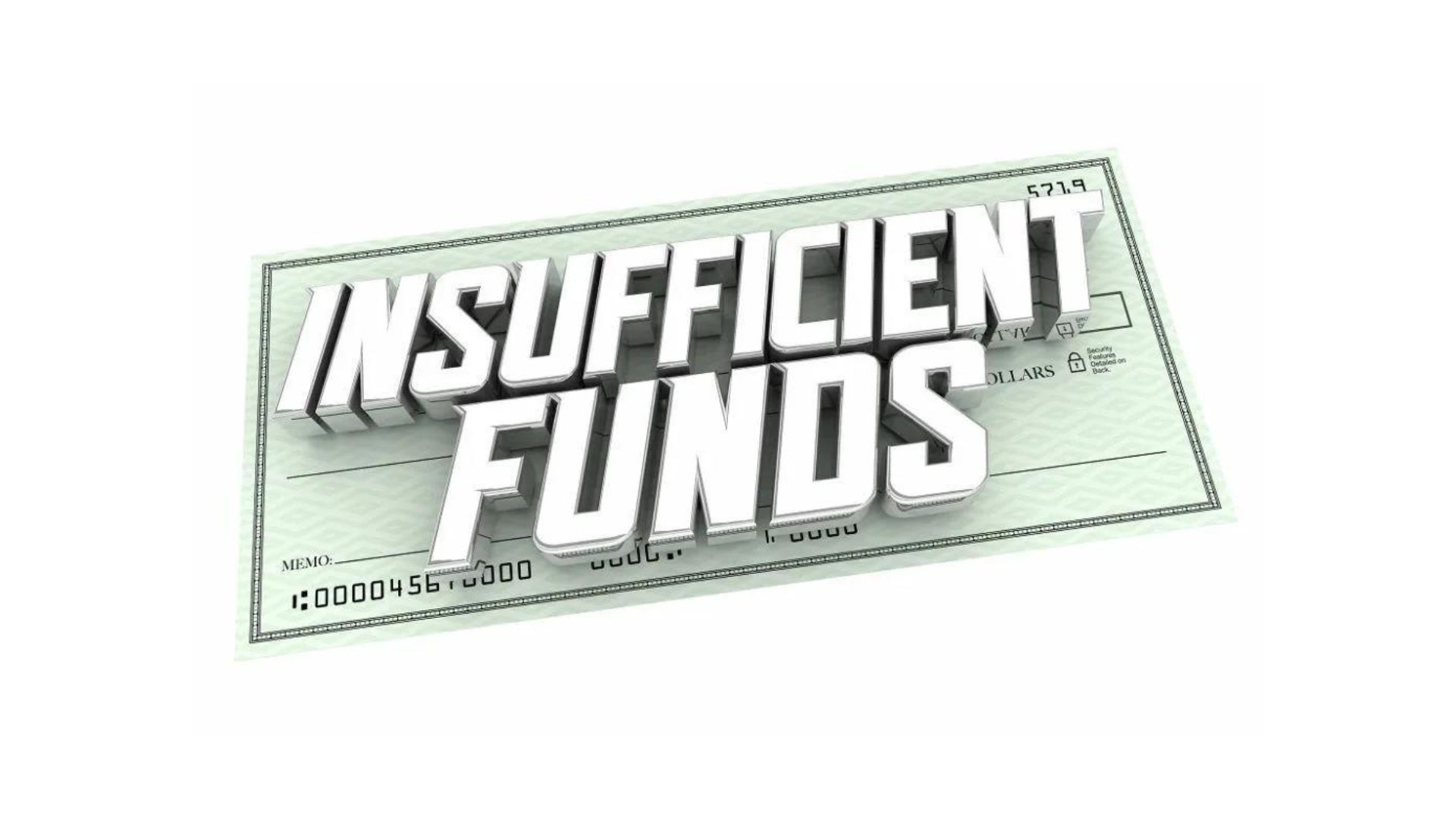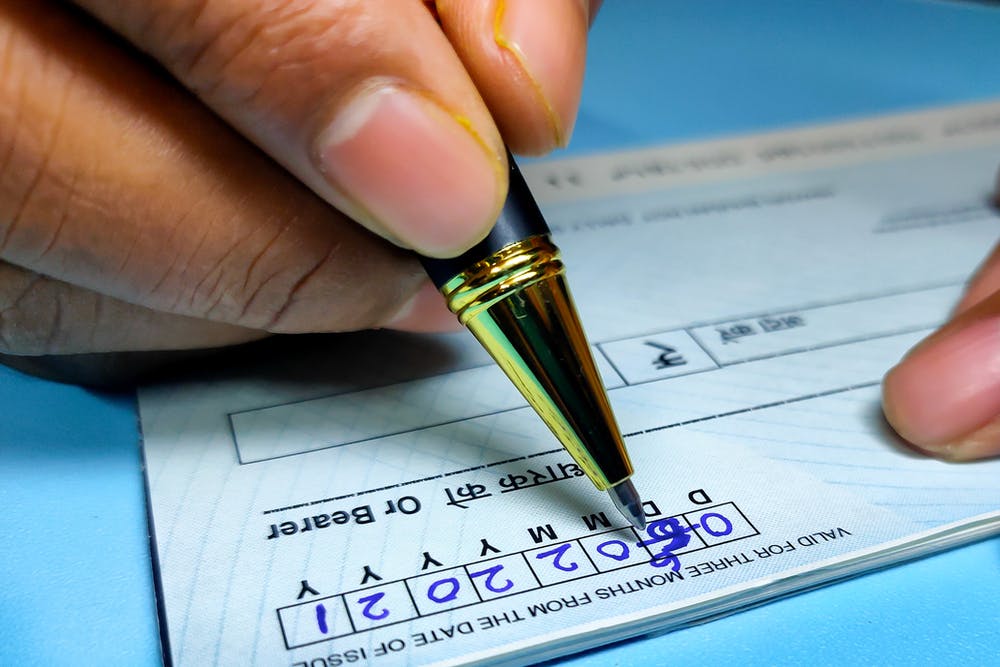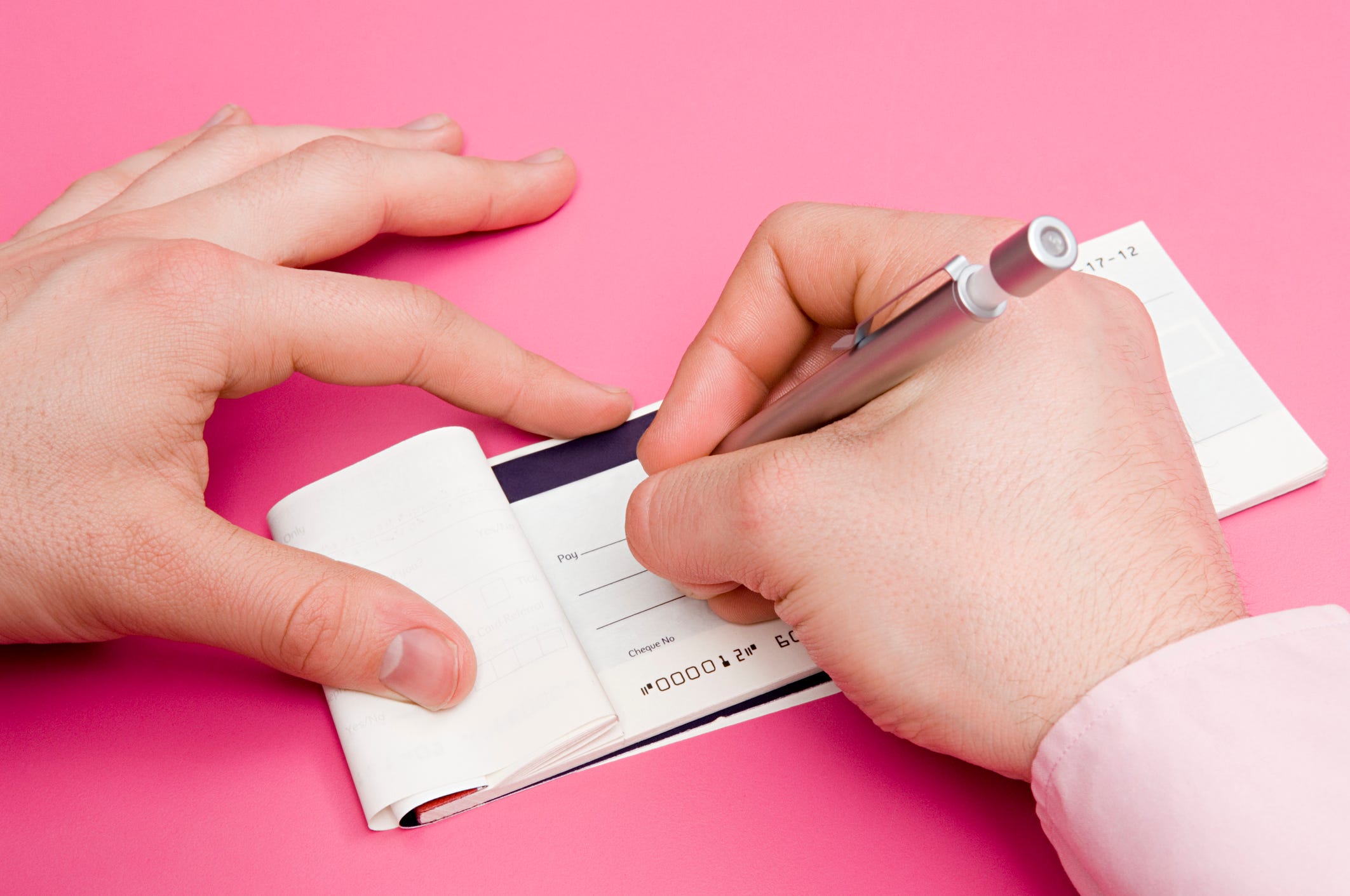Are There Any Legal Consequences Of Bounced Checks?
Are there any legal consequences of bounced checks? Bounced checks, commonly known as insufficient funds or dishonored checks, can lead to a myriad of legal ramifications for individuals and businesses alike. When an individual issues a check without sufficient funds in their account to cover the amount, they may find themselves facing legal consequences.

Morgan Barrons
Jan 25, 2024
When a check is presented for payment, and the issuing account lacks sufficient funds, it leads to a bounced check. This not only incurs financial penalties but can also have legal ramifications, potentially involving civil and criminal consequences.
The reasons behind a check bouncing vary, from insufficient account balances to issues like overwriting, damaged checks, or fraudulent activities. Understanding the implications of bounced checks is crucial for individuals to navigate potential legal challenges and protect their financial standing. In this article, we will be discussing whether are there any legal consequences of bounced checks.
What Does It Mean When A Check Bounces?
If you write a check and someone presents it for payment, your bank will not recognize it. This is called "bouncing a check." The word "bounce" comes from the fact that the bank or credit union that got the check sent it back because the account holder who wrote the check doesn't have enough money to cover the amount on the check.
A bounced check is sent back to the bank or credit union that issued it. The account user who wrote the check may be charged an overdraft or insufficient funds fee at the very least and could face criminal charges if the check meets the state's definition of bank check fraud.
Not having enough money in your account is not always the same thing as bouncing a check, though that is a regular reason. There are several reasons why a bank might need help to cash a written check. This is called a "bouncing check."
What Happens When A Check Bounces?
If a check is bounced, it can't be handled because either the account that it was drawn on doesn't have enough money or there was a mistake in the writing on the check. It can be frustrating to deal with a bounced check, whether you are the one sending or getting the money.
When A Check You've Written Bounces
If your check didn't clear, your bank might charge you a fee for needing more funds or going overdrawn.
The company you were trying to pay may also charge you a late fee if your payment is now past due because of the lost check. If you don't pay your past-due fees, your account could be sent to collections.
When You Receive A Check That Bounces
If a check you sent bounced, you'll have to wait for the money you're due. Now that the payee has given you a check that bounced, you may not trust them to pay you at all.
You can only meet your other cash obligations if you get paid. If you also wrote a bad check, your bank may have charged you a fee.
Circumstances Of Cheque Bounce
Here are some of the different situations that can cause a check to bounce:
Insufficient Account Balance
The drawer (the person who wrote the check) needs more money in their bank account to cover the amount written on the check. The bank won't accept the check because of this.
Expired Validity Of Cheque
Checks are only good for a certain amount of time. If you bring a check to the bank after that time, it will be rejected because it is no longer legal.
Overwriting
If the check is changed, corrected, or overwritten without proper authentication, it can make the bank suspicious, and they may not recognize the check.
Damaged Cheque
The bank may not accept a check that is torn, disfigured, or damaged in any way that makes it hard to read or prove that it is accurate. For a check to be acceptable, banks usually have strict rules about how it should be presented.
Signature Mismatch
The signature on the check must match the sample signature that the account user gave to the bank. The check might only be recognized if there is a slight difference or if the signature looks sketchy.
Mismatch Of Amounts Or Digits
If there is a difference between the amount written in words and the numbers on the check, or if there is a mistake in the numbers, the check might not be legal. The amounts written in words and numbers should be exact.
Fraudulent Activity
Bounced checks can sometimes be caused by fraud, like check forgery, identity theft, or someone getting into your account without your permission. The bank will usually refuse to cash a check that turns out to be fake, and they may also start an investigation into the case.
People who want to avoid having checks bounce because of fraud should check their account statements often, tell their bank about any strange behavior, and take steps to keep their personal information safe.
What To Do If You Bounce A Check?
Don't worry if you've bounced a check. There are three ways to fix it.
Contact Your Bank And The Recipient Immediately
If you discover that you've bounced a check, the first step is to contact both your bank and the recipient promptly. Notify your bank about the situation and inquire about any fees incurred.
Informing the recipient is crucial for transparency and to maintain a good relationship. Explain the situation, and be open to discussing how you can rectify the issue promptly. Clear communication often prevents further complications.
Make Payment Arrangements
Once you've contacted your bank and the recipient, work on making payment arrangements. Understand any fees imposed by your bank and negotiate a repayment plan if necessary.
Some banks may offer overdraft protection or have specific procedures for handling bounced checks. Be proactive in resolving the situation to avoid additional fees and potential damage to your financial reputation.
Consider Alternative Payment Methods
While dealing with a bounced check, consider alternative payment methods to fulfill your financial obligation. This might involve using cash, electronic transfers, or cashier's checks to ensure immediate and secure payment.
Discuss these alternatives with the recipient and choose the method that is convenient for both parties. Taking swift action and offering viable alternatives demonstrate your commitment to resolving the situation responsibly.
Consequences Of Bounced Checks
Overdraft Fees
A bank may charge the person who wrote the check an overdraft fee if the check bounces because there aren't enough funds in the account.
This fee is charged for every lousy check, and it can add up very quickly, putting a lot of stress on the person's finances. Their bank may also charge the person who received the failed check a returned check fee. This makes the situation even more expensive for everyone.
Negative Impact On Credit Score
Checks that are returned can also hurt the credit score of the person who wrote the check. The person who received the check may report it to credit bureaus if the person responsible needs to quickly take care of the problem and make good on the payment.
This will show up on the check writer's credit report as a negative item. This could hurt the person's credit score, which would make it harder for them to get loans, credit cards, or other financial goods in the future.
Strained Relationships
Suppose the person who wrote the check is a friend or family member; a lousy check can make things tense between you. To avoid misunderstandings and hurt feelings, it is essential to talk about the problem openly and honestly.
Legal Consequences
When a check bounces, the person who wrote the check may face civil consequences. Check fraud may happen if someone writes a check with insufficient funds based on the situation and their intent.
People who are caught writing fake checks could be fined, have to pay court fees, or even go to jail. The person who received the bad check may also go to court to get the money back, which will add to the check writer's legal and financial problems.
Nonsufficient Fund Fees
People whose checks bounced used to have to pay their bank a fee called an insufficient nonsufficient fund (NSF) fee. Some bigger banks, like Bank of America, JP Morgan Chase, and PNC, have stopped charging NSF fees for some accounts in the past few years.
Merchant Fees
The business that received the check may also charge the person who wrote it a fee for a "bouncing check." Merchant fees are usually limited to $20 to $50 in most states.
Monetary Penalties
People who write bad checks might have to pay a hefty fee. A lot of banks charge $25 to $35 for checks that need to be clarified. This fee is charged for every check that bounces. Most of the time, banks can handle deals in any order as long as they follow the steps spelled out in their customer agreement.
This means that on the same day, they may process all debits before refunds. Even if someone makes a deposit, they may still have to pay bounce fees for every transaction the bank handles before the deposit is processed. With all of these extra fees, the deposit may not be enough to get the account back in the black.
Civil Liability
People who break the law may also face civil penalties in addition to possible criminal penalties. In civil court, either the bank or the person who got the wrong check can sue. The person who was found guilty might have to pay the ruling, which could include attorney's fees and court costs.
Other Consequences
The bank may close an account if someone bounces checks too many times. If public benefits are deposited into this check or a person's wages are immediately deposited, this can make things more complicated.
Some businesses keep track of people who write bad checks and share that data with banks and stores. This means that a store might not accept a check from someone who has never bounced a check with that business. This can also stop accounts from being made in the future.
People who write bad checks may have marks on their credit records if the check goes to collections. Because of these charges, a person may get a criminal record that can follow them around for the rest of their lives. They may also be turned down for some jobs because of a crime record or bad credit.
Effects Of Bounced Checks On Your Credit
Since bounced checks aren't usually reported to the three leading credit companies, they don't affect credit scores. But a lost check can affect your credit report. People may see a slight change in their credit score if they have ongoing debts or credit collections that are the result of legal action taken by the lender or creditor.
A bounced check can often lead to ongoing debts or calls and emails from collection agencies. People who write checks should know that these bills can be reported to credit bureaus. This will lower credit scores and make it harder to get a loan, a sound credit card, or lower interest rates in the future. That's a big reason why you need to deal with bad checks right away.
Preventing The Bounced Checks
You might not be able to fix a check that has already bounced, but you can make sure it doesn't happen again. You can avoid getting a check when you don't have any money:
Balance Your Account
The most important thing you can do is check your account often. That means you should always know how much money is in your account and how much is about to leave. Check your account often to make sure there are no payments, checks, or automatic changes that need to be made. Find out how to use different tools to keep your account balanced.
Keep A Cushion
Mistakes can happen even when you plan well. Keep some extra money in your account in case something comes up. If you forget to pay your bills or your boss pays you late, a safety cushion can keep things from getting worse.
Watch Your Balance
It takes a lot of work to remember everything. Your account amount could also be frozen in ways you didn't expect like if you use your debit card at a gas station or a deposit is held.
Learn how to quickly check your account balance so you can fix issues before they get worse. Make sure you know when your account value is getting low by setting up alerts.
Track Your Cash Flow
You're already making a budget every month to keep track of your spending and handle your money. Also, keeping track of your cash flow can help you figure out when your account will have the most money (like when you get paid) and the least money (like when you pay your rent or mortgage) each month.
In some situations, a signed check might only be one day away from being accepted or turned down.
Consider Overdraft Protection
It can be pricey to get overdraft protection, but it doesn't have to be. You will only have to pay overdraft fees sometimes if you use it as a safety net and not as a primary source of cash flow.
Your bank may cover bad checks for less than the cost of bounced check fees to stores and NSF fees to your bank. You could pay even less in fees if you use an overdraft line of credit or tell your bank to take money out of your savings account when your checking account doesn't have enough.
Pay With A Debit Card
If you keep having your checks bounce, try using a debit card instead (if you can). You'll know right away if the deal is affordable. Your card will only work if you have told your bank to go ahead with those charges.
How Serious Is A Bounced Check?
Your bank will likely charge you an insufficient funds (NSF) fee and an overdraft fee if you write a check for more than the amount in your account.
The company that you wrote the bad check to may also charge you for not paying them. Businesses may not accept your checks after they bounce, your credit score may go down, and you could even get in trouble with the law.
Frequently Asked Questions
What Is The Legal Action For A Bounced Cheque?
Legal action can include fines, imprisonment, or both, depending on jurisdiction.
What Are The Consequences Of Bouncing Checks?
Damage to credit score, legal penalties, and loss of credibility with financial institutions.
What Is The Consequences Of A Cheque Bounce?
Penal charges, potential legal action, and difficulty in obtaining future financial services.
Conclusion
The phrase "Are there any legal consequences of bounced checks?" underscores the significant impact of this financial misstep. The repercussions extend beyond financial penalties, encompassing potential legal actions, strained relationships, and adverse effects on credit scores.
Individuals facing bounced checks should act promptly, contacting their bank, making payment arrangements, and considering alternative payment methods to mitigate the consequences.
Prevention measures, such as maintaining account balances, tracking cash flow, and exploring overdraft protection, play a pivotal role in avoiding the severe legal and financial implications associated with bounced checks.



